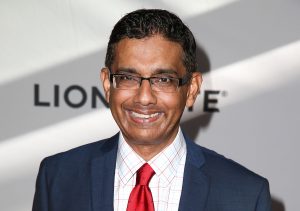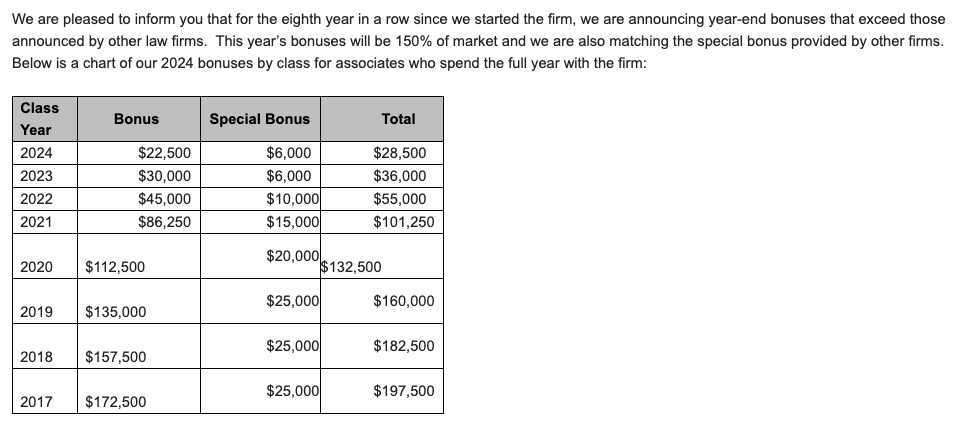Every
so
often,
large
medtech
companies
face
allegations
of
exploiting
physicians’
intellectual
property.
Some
worry
that
this
pattern
threatens
to
stifle
medical
innovation
—
with
large
firms
turning
novel
ideas
into
profits
while
leaving
original
inventors
mired
in
lengthy
legal
battles.
This
month,
yet
another
physician
accused
a
large
industry
incumbent
of
stealing
her
idea.
Hexagon
Health
—
a
hernia
care
company
founded
by
Dr.
Shirin
Towfigh
in
2015
—
is
suing
Medtronic,
alleging
that
the
medical
device
giant
copied
Dr.
Towfigh’s
hernia
mesh
repair
design
and
knowingly
continued
to
sell
the
product
even
after
the
U.S.
Patent
Office
formally
granted
Hexagon
its
patents.
While
it’s
unclear
whether
the
case
will
make
it
to
trial,
the
dispute
highlights
the
struggle
over
who
controls
the
future
of
hernia
care,
as
well
as
who
powers
the
dynamics
that
shape
healthcare
innovation,
lawyers
said.
What
is
Hexagon
Health?
In
an
interview,
Dr.
Towfigh
said
she
founded
Hexagon
with
the
goal
of
improving
patients’
abdominal
and
pelvic
health.
The
company
seeks
to
address
gaps
in
hernia
care
—
particularly
for
women,
who
have
historically
been
underrepresented
in
research
and
product
development
for
the
condition,
she
noted.
Dr.
Towfigh
—
who
remains
a
practicing
surgeon
in
Beverly
Hills
—
said
that
nearly
80%
of
her
work
is
revisional
hernia
surgery.
This
work
inspired
her
to
develop
a
textile
mesh
with
a
fin-like
shape
to
help
prevent
common
complications
that
occur
in
patients
undergoing
hernia
repair
procedures.
Her
designs
are
meant
to
benefit
both
male
and
female
patients.
For
example,
she
believes
her
mesh
designs
improve
treatment
for
men
with
inguinal
hernias
—
a
type
of
hernia
occurs
in
the
groin
area
when
a
part
of
the
intestine
or
bladder
protrudes
through
the
lower
abdominal
wall.
Traditional
inguinal
hernia
mesh
designs
can
erode
or
obstruct
male
genital
structures,
such
as
the
genital
nerve
and
the
spermatic
cord
and
its
contents,
and
the
genital
nerve,
resulting
in
unwanted
complications
like
painful
intercourse
and
testicular
pain,
Dr.
Towfigh
said.
She
also
noted
that
her
products
benefit
women
because
they
offer
improved
coverage
in
the
femoral
space,
which
is
located
on
the
upper
thigh.
Women
are
10
times
more
likely
than
men
to
develop
femoral
hernia
—
which
is
the
only
type
of
hernia
with
a
significant
risk
of
death
if
misdiagnosed
or
not
treated
in
a
timely
fashion.
Dr.
Towfigh
added
that
her
designs
are
meant
to
reduce
risk
of
damage
caused
by
traditional
hernia
mesh
products
to
women’s
pelvic
floor
muscles,
nerves
and
major
blood
vessels.
Hexagon
began
filing
patents
for
Dr.
Towfigh’s
novel
hernia
mesh
designs
in
2015,
the
same
year
the
company
was
founded.
She
has
since
been
granted
nine
patents,
she
said.
What
does
the
lawsuit
allege?
In
the
complaint
filed
against
Medtronic,
Hexagon
alleged
that
the
medical
device
giant
took
Dr.
Towfigh’s
novel
ideas
and
patented
designs
to
develop
its
product
Dextile.
The
complaint
also
stated
that
Dr.
Towfigh
spent
six
years
in
conversations
with
Medtronic
to
bring
her
textile
mesh
product
to
market.
It
said
that
the
parties
initially
met
in
2015
and
signed
a
mutual
non-disclosure
agreement.
“I’ve
known
the
Medtronic
company
and
their
people
for
many
years.
It
was
nice
that
they
showed
interest
in
my
product
—
I’ve
been
traveling
all
over
the
world,
meeting
them
in
different
venues
to
get
to
a
point
where
this
mesh
can
come
to
market,”
she
said.
Dr.
Towfigh
said
she
had
several
meetings
with
Medtronic
leadership,
including
a
trip
to
the
company’s
manufacturing
facility
in
France.
The
purpose
of
these
meetings
was
to
discuss
opportunities
for
Medtronic
to
collaborate
with
her
and
her
patent-pending
mesh
product,
she
noted.
But
in
2017,
Medtronic
filed
its
own
patent
for
a
hernia
mesh
product
that
Dr.
Towfigh
thinks
closely
mirrors
her
design.
Medtronic’s
product
has
a
fin-like
shape
aimed
at
reducing
post-surgical
complications
by
ensuring
more
secure
and
stable
placement
during
the
procedure,
similarly
to
Hexagon’s
designs,
the
complaint
said.
In
a
statement
sent
to
MedCity
News,
Medtronic
said
it
is
actively
reviewing
the
case,
noting
that
the
company
“has
a
long
history
of
respecting
the
intellectual
property
rights
of
other
innovators.”
What
happens
next?
One
lawyer
who
is
not
involved
in
the
case
—
Peter
Sullivan,
patent
attorney
and
co-chair
of
the
PTAB
proceedings
practice
group
at
Foley
Hoag
—
said
Hexagon’s
lawsuit
stood
out
as
an
interesting
case
to
him.
This
is
because
Dr.
Towfigh
is
seeking
not
only
financial
damages
for
the
patent
infringement
—
but
also
to
be
listed
as
an
inventor
for
Medtronic’s
device.
“It’s
actually
not
just
a
patent
infringement
case.
The
doctor
and
her
company
own
patents,
but
they’re
also
seeking
to
be
listed
as
investors
on
the
Medtronic
patents,”
Sullivan
remarked.
“That’s
a
wrinkle
you
don’t
normally
see.”
He
also
said
that
he
thinks
the
complaint
makes
a
compelling
case
for
not
just
patent
infringement
—
but
also
outright
copying.
“With
infringement
you
don’t
actually
have
to
take
anything.
You
just
have
to
have
something
that’s
like
someone
else’s
stuff
—
you
can
be
working
completely
independently.
But
in
this
case,
there
was
a
lot
of
crossing
—
business
discussions
about
this
new
kind
of
mesh
that
would
be
an
improvement
over
what
the
state
of
the
art
was.
I
think
that
that
makes
this
a
little
more
interesting,
especially
more
interesting
to
a
jury.
Ultimately
people
want
to
have
a
compelling
story
for
copying,
not
just
infringement,”
he
explained.
Sullivan
thinks
the
case
will
likely
go
through
a
couple
of
phases.
The
first
phase
will
probably
be
that
Medtronic
moves
to
invalidate
Hexagon’s
patents,
he
said.
When
a
company
is
accused
of
violating
a
patent,
a
typical
defense
is
to
argue
that
the
patent
should
never
have
been
granted
in
the
first
place,
Sullivan
explained.
These
disputes
are
typically
handled
by
the
Patent
Trial
and
Appeal
Board
(PTAB),
and
if
the
reviewers
decide
to
invalidate
the
patent,
the
infringement
claim
is
moot.
But
even
if
Hexagon’s
patents
do
get
invalidated,
the
case
could
still
go
forward,
Sullivan
pointed
out.
Dr.
Towfigh
is
seeking
to
be
listed
as
an
inventor
for
Medtronic’s
product,
and
this
is
a
separate
claim,
he
stated.
Sullivan
noted
that
it’s
too
early
to
predict
whether
this
case
will
go
to
trial.
“How
a
jury
thinks
about
this
will
depend
on
what’s
left
of
the
case
when
they
finally
get
to
it
—
it’s
a
defendant’s
job
is
to
whittle
away
at
all
the
claims,
to
see
what
could
be
limited,
what
can’t
be,
and
go
from
there.
But
I
think
that
it’s
not
the
typical
infringement
case
—
you
had
this
active
collaboration
going
on,
and
I
think
that’s
something
that
will
be
helpful
for
the
plaintiffs
if
they
ultimately
get
to
a
jury,”
he
remarked.
What
does
this
mean
for
physicians?
Dr.
Towfigh
pointed
out
that
her
experience
with
Medtronic
makes
her
feel
wary
of
large
incumbents
and
their
ability
to
help
physicians
bring
innovative
ideas
to
market.
“There’s
a
sacred
relationship
between
physicians
and
industry
—
especially
surgeons,
since
we
are
at
the
patient
level.
We’re
the
ones
who
are
operating,
and
we’re
the
ones
who
see
where
there’s
good
and
bad
and
where
there
can
be
improvements
in
products,”
she
declared.
Without
industry
partners,
it
can
be
difficult
for
sole
physicians
to
make
an
impact,
Dr.
Towfigh
noted.
“I
think
most
of
us
surgeons
don’t
really
understand
that
there
are
situations
where
you
can
have
excellent
ideas
and
pitch
them
and
do
everything
right
—
you
got
your
patent
filed
and
you
got
your
NDAs
—
and
yet,
there
are
possibilities
where
there
can
still
be
a
case
of
infringement,”
she
explained.
Dr.
Towfigh
added
that
she
thought
a
large,
publicly
traded
company
like
Medtronic
would
adhere
to
“higher
ethical
standards.”
When
asked
to
respond
to
Dr.
Towfigh’s
remarks,
Medtronic
opted
not
to
provide
further
commentary.
Dr.
Towfigh
said
her
main
concern
is
that
in
the
future,
surgeons
with
innovative
ideas
will
not
be
able
to
trust
major
companies
enough
to
divulge
their
ideas.
Her
lawyer
agreed.
“Medtronic’s
improper
use
of
Hexagon
Health’s
hernia
mesh
designs
has
cost
Dr.
Towfigh
significant
financial
gain
and
created
a
disincentive
for
other
physician-entrepreneurs
to
enter
the
medical
device
marketplace
with
innovative
products
for
patients
in
need,”
Nicholas
Groombridge,
Hexagon’s
attorney
and
partner
at
Groombridge,
Wu,
Baughman
&
Stone
LLP,
said
in
a
statement.
“Medtronic
has
a
history
of
infringing
patents
and
failing
to
honor
agreements
with
physician-inventors,
and
we
look
forward
to
addressing
this
matter
in
court.”
Dr.
Towfigh’s
case
is
not
the
first
time
Medtronic
has
come
under
fire
for
alleged
patent
infringement.
For
instance,
pediatric
orthopedic
and
scoliosis
surgeon
Dr.
Mark
Barry
sued
Medtronic
in
2014,
alleging
that
the
company
infringed
on
two
of
his
patents
for
spinal
devices.
Dr.
Barry
won
$23.5
million
when
a
federal
judge
ruled
that
Medtronic
had
copied
his
technology.
Also
in
2014,
Medtronic
agreed
to
pay
more
than
$1
billion
to
settle
a
patent
dispute
with
Edwards
Lifesciences,
which
alleged
that
Medtronic’s
CoreValve
product
was
violating
the
patent
for
its
transcatheter
heart
valve.
And
just
last
year,
a
jury
ordered
Medtronic
to
pay
$106.5
million
to
medical
device
company
Colibri
Heart
Valve
as
the
result
of
another
patent
infringement
case.
Another
patent
lawyer
said
this
type
of
infringement
is
nothing
new.
“Unfortunately,
large
technology
companies
ripping
off
inventions
of
physicians
is
all
too
common,”
said
Andrew
Bochner,
managing
partner
at
Bochner
PLLC.
Bochner
currently
represents
NYU
Langone
cardiologist
Joseph
Wiesel
in
a
federal
court
case
accusing
Apple
of
using
his
patented
atrial
fibrillation
monitoring
tool
in
its
Apple
Watch
without
permission.
Apple
has
delayed
the
case
by
filing
multiple
petitions
to
invalidate
Dr.
Wiesel’s
patent,
he
said.
When
discussing
his
client’s
case
with
MedCity
News
earlier
this
year,
Bochner
noted
that
Apple’s
multiple
patent
invalidation
attempts
were
part
of
the
company’s
plan
to
battle
“tooth
and
nail”
in
order
to
wear
out
its
rivals
with
fewer
resources.
He
noted
that
large
companies
in
the
tech
and
medtech
spaces
employ
these
tactics
because
most
physicians
or
small
companies
can’t
afford
to
keep
up
with
the
litigation.
For
Dr.
Towfigh
and
other
physician-innovators,
this
lawsuit
underscores
a
broader
challenge:
ensuring
that
the
next
big
medical
breakthrough
is
protected,
not
co-opted.
Photo:
wildpixel,
Getty
Images
 Kathryn
Kathryn









 Chris
Chris








